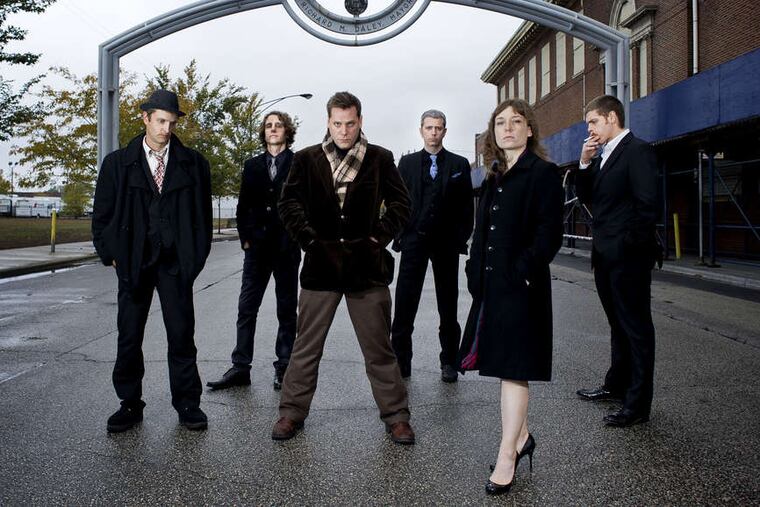American musicians have turned Irish music into a booze-soaked joke | Opinion
American musicians have soaked their version of Irish traditional in pints and shots, and Irish culture scholars say they’ve done a serious disservice to the music they revere.

You may feel as though you’re ready for detox after St. Patrick’s Day, even if you avoid the pub that day. You’ll probably hear plenty of Irish music on March 17, and the tunes alone might put a wobble in your step. American musicians have soaked their version of Irish traditional in pints and shots, and Irish culture scholars say they’ve done a serious disservice to the music they revere.
Searching Irish Rock on Spotify recently, the first song that came up was “Good Morning Da” by the Tossers out of Chicago. It starts off with a man in jail, reflecting on how he ended up there. It appears he’d had a drink or two. “Well, I’d only 15 pints, but I could not see,” it goes.
Next was “Two Bit Town” by the Pubcrawlers out of Portland, Maine. As if the band name didn’t give its intent away, the track’s album is titled “Rogues, Outlaws & Drunks.” After that was “Streams of Whiskey” by the Pogues. It recommends “15 pints of beer” as a cure for when the world gets too dark.
Fifteen seems to be the magic pint number for both the Pogues and the Tossers.
Those Tossers came up again, with the next song to pop up under Irish Rock. It’s called “Siobhan,” and the protagonist enjoys a wide variety of potent potables: “Siobhan is on the whiskey, Siobhan is on the gin. Siobhan is drinking Red Bull and vodka and won’t be home again.”
The Tossers describe their oeuvre as “Irish Drinking Music for Punk Rockers.”
Don’t blame the Irish for all the booze in Irish music. True traditional music focuses more on politics, immigration, famine and other topics central to the Irish experience, said Sheila Falls Keohane, director of the Gaelic Roots Series at Boston College and a fiddler. She believes American tourists see all the pubs in Ireland, which are more about socializing than getting blotto, and soak their version of traditional music in alcohol, thinking it’s the Irish way.
“The American bands mustn’t know the history and politics and everything else that happened in Ireland,” said Falls Keohane.
Countless Irish rock bands cite the Pogues as a key influence. Shane MacGowan fronted the London band, which deftly mixed Irish traditional and punk. MacGowan wrote frequently of drinking. ”The Sick Bed of Cuchulainn,” for one, sees a man kick the windows out of a pub that won’t serve him, throw up in church, then get buried in a casket, only to climb out shouting for “another round.”
But MacGowan also wrote about love and heartbreak, prejudice and the immigrant experience, with serious wit and wisdom.
The bands the Pogues inspired are simply dying for a drink.
A trip to Ireland is hardly complete without a Guinness in the pub. But there’s a lot more to Irish culture than beer and whiskey. Ireland is going through wholesale social change; the rapidly diversifying nation has shifted its collective viewpoint on same-sex marriage, abortion, and other vital issues. It’s time the Yanks’ take on traditional music – or at least their hits most likely to get played at pubs — better reflected this evolving nation.
“Americans ask for drinking songs,” said Falls Keohane, referring to what she calls the “Plastic Paddies” who pack the pubs March 17. “But no one wants to sing them.”
Those who play traditional sessions in our pubs do so all year round. They may have a tipple when they play, but not much more. “The excesses that we witness around March 17 are not a part of the music as we know it,” said Sally Sommers Smith, Boston University associate professor of traditional music and a fiddler as well. “These do a marked disservice to Irish people, and to the music of which they are justly proud.”
Michael Malone writes about television for the trade mag Broadcasting & Cable. Based in New York, his work has appeared in the New York Times, ESPN.com, and Playboy.